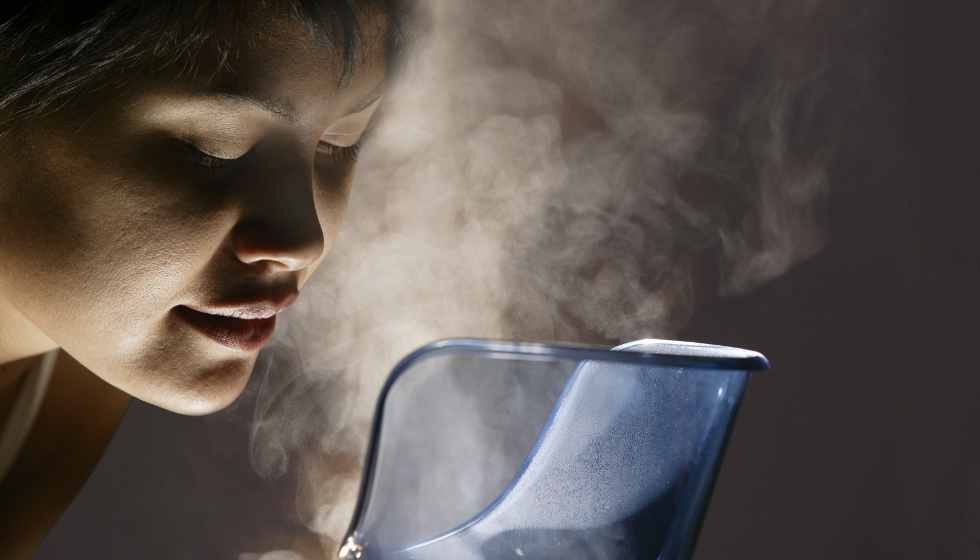Often there is a recommendation to “steam the face” before applying the mask or cleansing. What does this mean, how to do this procedure correctly and who should refuse it? We understand together with experts.
Benefits, contraindications and methods of steaming the face at home.
Why steam your face
Steaming the skin is heating it with steam. At a comfortable elevated temperature, the pores open, and the facial muscles relax, resulting in the skin becoming more pliable for treatments and the absorption of nutrients. It is better to steam the face immediately before cleansing or applying masks.
With an increase in temperature, blood circulation increases; in addition, heat therapy helps improve the skin’s structure and exfoliates dead epidermal cells. When heated in the deep layers, collagen and elastin molecules are strengthened.
In one study, scientists tested how temperature affects the effect of a nicotine patch on the skin. They noted a threefold increase in the absorption of the substance through the skin at 42 degrees Celsius compared to 32 degrees Celsius.
Oils and creams help the skin retain moisture, but hydration occurs only with the help of water. Steaming is a great way to make your face more hydrated. Members of the American Dermatological Association recommend that people with dry skin close the door while taking a bath to fill the room with steam.
The procedure is not contraindicated for dry or oily skin. If you decide to do the cleaning at home, the main thing is to consider its features and not carry out the procedure in case of inflamed comedones.
How to steam your face: step-by-step instructions
Natalya Volkova clarifies that rosacea, acne and inflammation on the face are considered contraindications for steaming.
In salons, a special apparatus for steaming is sometimes used – a vaporizer. According to Elena Zubova, the steaming procedure with its help is rarely carried out today: A vaporizer that generates water vapour, in fact, creates sauna conditions, which exacerbates rosacea. And even contributes to its appearance if there is such a predisposition.
We note rosacea in almost every second patient. The only exception in which you can safely steam your face is thick skin without spider veins. And only if you need to clean clogged pores well. Although in this case, I do not advise abusing the heat.
How to start steaming your face at home
1. Prepare everything you need: A glass or enamel bath (deep dish), a kettle, a towel or thermoactive cosmetics – depending on the chosen streaming option. Keep cosmetics nearby that you will need for further procedures. Opened pores will begin to shrink as they cool, so brushing or applying a mask should be done immediately after exposure to steam.
2. Remove hair: Fasten long strands with hairpins or elastic bands, and hide short strands under a headband or scarf. The face must be accessible.
3. Cleanse the skin: Remove impurities and make-up, for example, with micellar water or hydrophilic oil. Be sure to wash your face with facial soap, cleansing gel or foam.
4. Boil water and let it cool down a bit: Too hot steam harms sensitive skin and the upper respiratory tract. The ideal steam temperature is 40-50 degrees Celsius. It isn’t easy to control it at home, so be guided by your feelings.
Six ways to steam
There are several home treatment options available. Here is what is used most often:
1. Bath
The procedure is already familiar to you if you have ever treated a cold with steam from boiled potatoes. You won’t need vegetables, just water: boil a couple of glasses and pour the water into a deep bowl or saucepan. Fix the container on the table or sink, and let it cool slightly. Lean over the solution at a distance of about 40 cm, cover your head and shoulders with a towel and stay in this position for five to seven minutes. At the end of the procedure, carefully remove the towel and pan.
Natalya Volkova recommends adding herbs, such as chamomile flowers, and other active ingredients to the water.
2. Hot towel
Make sure the boiled water has cooled to a comfortable temperature. Wet and wring out the towel. Place it against the back of your hand to ensure it’s warm enough but not too hot. Cover your face with a towel or touch it to different areas of the skin.
For oily skin, it is better to choose a terry towel; for sensitive skin, a muslin fabric is suitable, and for normal skin, a soft flannel.
3. Application
Instead of a towel for the whole face, you can take a small napkin and treat individual areas of the skin similarly. For example, the T-zone area – forehead, nose and chin – to get rid of black dots. The napkin can be left on the face for a couple of minutes. This method is often used in Asian spas.
Do not forget about the neck and decollete area; they can also be steamed and moisturized after the procedure.
4. Cosmetics
Thermoactive products allow you to steam the skin without boiling water. This is a good option for a targeted effect on selected areas, which is suitable even for owners of sensitive skin. The composition of such cosmetics includes magnesium sulfate (aka magnesia) or Epsom salts. Sometimes, honey, ginger and cinnamon are added. Upon contact with the skin, the product warms up to 40-50 degrees Celsius.
Some components of cosmetics are distinguished by hypotonic properties, saturating the skin with moisture, due to which the pores swell and open. Pay attention to masks with aloe and cactus extracts, acting as a light peeling. For the selection of funds, consult with a dermatologist-cosmetologist.
5. Home mask
Warming cosmetics can be done independently. To do this, you need two or three tbsp. l. semolina, 100 ml of milk, 0.5 tsp. honey and 0.5 tsp. Cinnamon. Milk should be heated and poured over cereal; let it brew for 15-20 minutes, then add honey and cinnamon to the mixture. The finished mixture should be heated to a comfortable temperature and applied to pre-cleansed skin for ten minutes.
6. Apparatus
If you like the effect of the steaming procedure and you do it often, you can buy a particular device – a sauna inhaler. Similar accessories are sold in pharmacies and professional cosmetic stores. A steam inhaler for the face is convenient in that it allows you to set and control the required temperature and the rate of steam supply. Otherwise, the recommendations for use are identical to the procedure with the bath.


